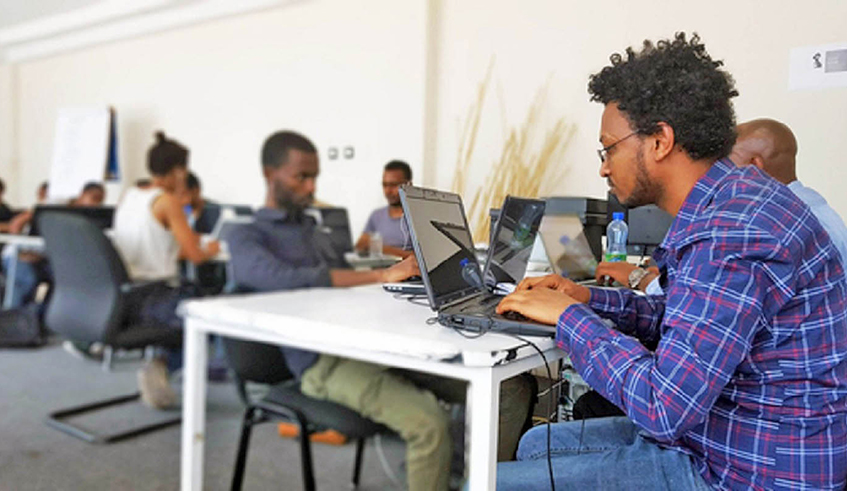

in an environment that is constantly changing, it is crucial to be creative within the workplace. If you ask different companies what they need from their employers, creativity will most likely be at the top of the list.
The number of graduates is increasing by the day and this has led to more people looking for jobs. For example, statistics show that University of Rwanda’s latest completion had over 9000 graduates.
As they graduate, they have to realise that today, the world is operating in a highly competitive, global environment, making creativity in the workplace a ‘must have’.
You might be wondering what creativity does for a business or organisation. Frank Furaha, an employment coordinator with Kepler, a non-profit higher education programme in Kigali, explains that it is creativity that keeps your business moving forward with fresh new ideas and innovation.
He says that it encompasses more than new products or services, but includes streamlining efficiency and productiveness.
"Because of the set tasks that have to be accomplished on a regular basis, we focus on them and forget about creativity,” he says.
"But finding new ways of doing things, and adding to the existing ones, leads to more productivity,” he adds.
Based on his own experience, Benson Rukabu, the national coordinator of Rwanda Education for All Coalition, says the productivity gained by creativity at the workplace is a catalyst of collaboration and increased efficiency.
"With the ability to think creatively and outside the box, employees are more likely to come up with unique and innovative solutions to obstacles they encounter. That way, it can lead to new ways to accomplish tasks and add to a more efficiently run business,” he explains.
For graduates who want to gain more creative skills, he says, "Just throw everything to the wall and see what sticks or comes out, it is in that way that you will shine.”
Problem solving and critical thinking
Apart from increased efficiency and creativity, Shalom Azabe, a counsellor, says that improving the client experience in one way or another is an added advantage through creative problem solving because it is essential for driving business forward.
However, he says that the process requires a strong understanding of the usual developments at the workplace.
"It requires being used to the norms and practices in the office. That gives you enough time to recognise when established practices could benefit from improvement. Through that fresh perspective, there is room for new processes that can benefit the initiative, the co-workers and the company,” Azabe notes.
Establishing how a company can’t survive without creative individuals who are mostly fresh graduates from school, the counsellor highlights that creative thinkers always come up with new and exciting ideas that advance the company’s goals.
"These new solutions help the company attract and attain quality customers, especially in today’s world where a customer’s taste constantly changes,” he adds.
Creativity enables people to look at the problem from every angle because creative people are good at accepting ambiguous situations in which more than one thing is true or when the truth is uncertain. This paves way for research leading to growth, Azabe says.
Rukabu is also of the view that creativity is needed in this fast changing world where preferences keep altering and flexibility becomes the only prescription.
"As much as a client’s taste changes, the company is challenged to come up with new ideas that excite the customers, this is where creative problem solving, along with critical thinking, become valuable because creative employees play with information instead of storing it,” Rukabu says.
Creative people tend to value details and are open to criticism, they are emotionally invested in their work, and most importantly they remain objective when reviewing everyone’s work, including theirs, explaining the fact that they are always open to feedback as well as constructive criticism to improve the ideas of their growth as individuals and their businesses.


